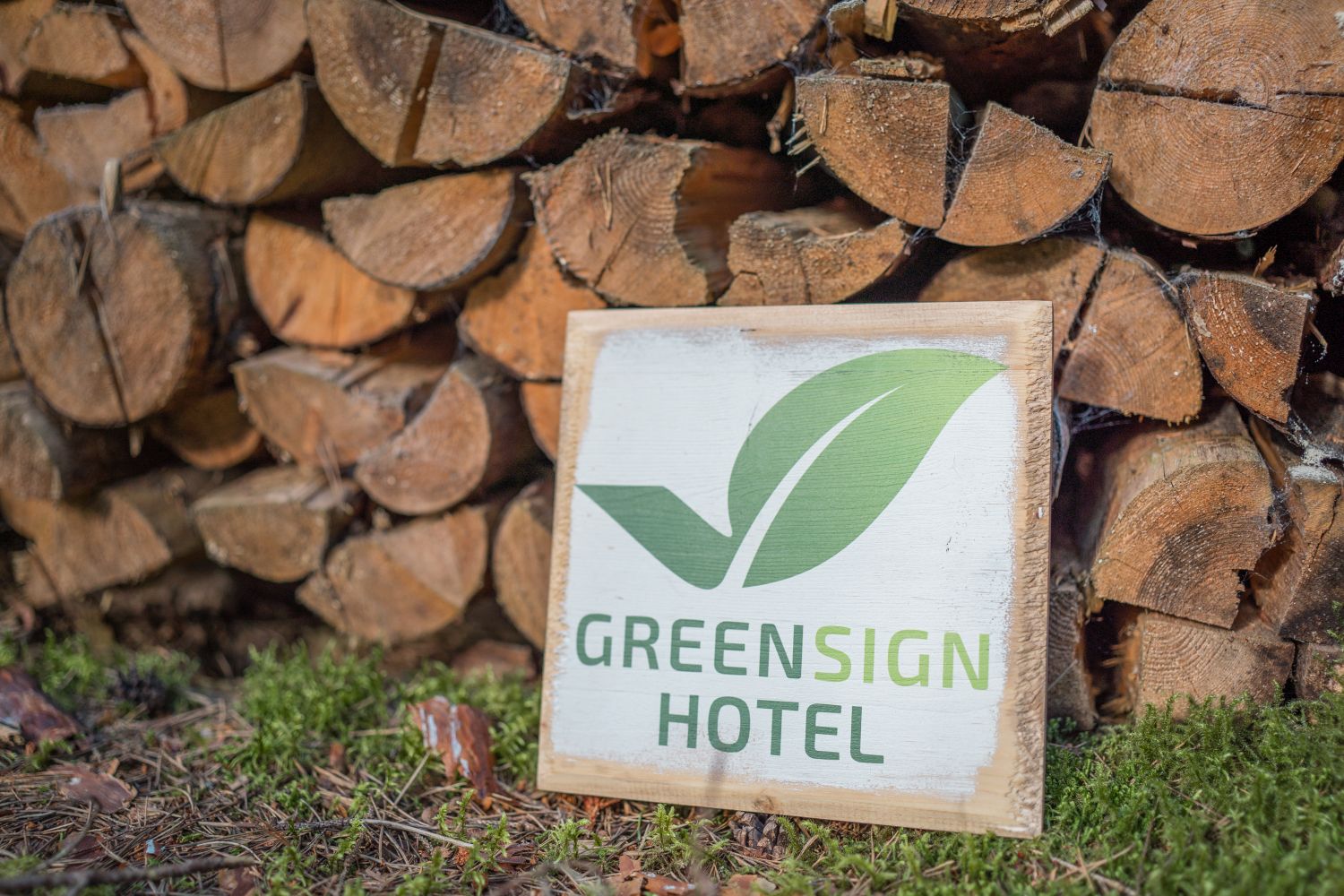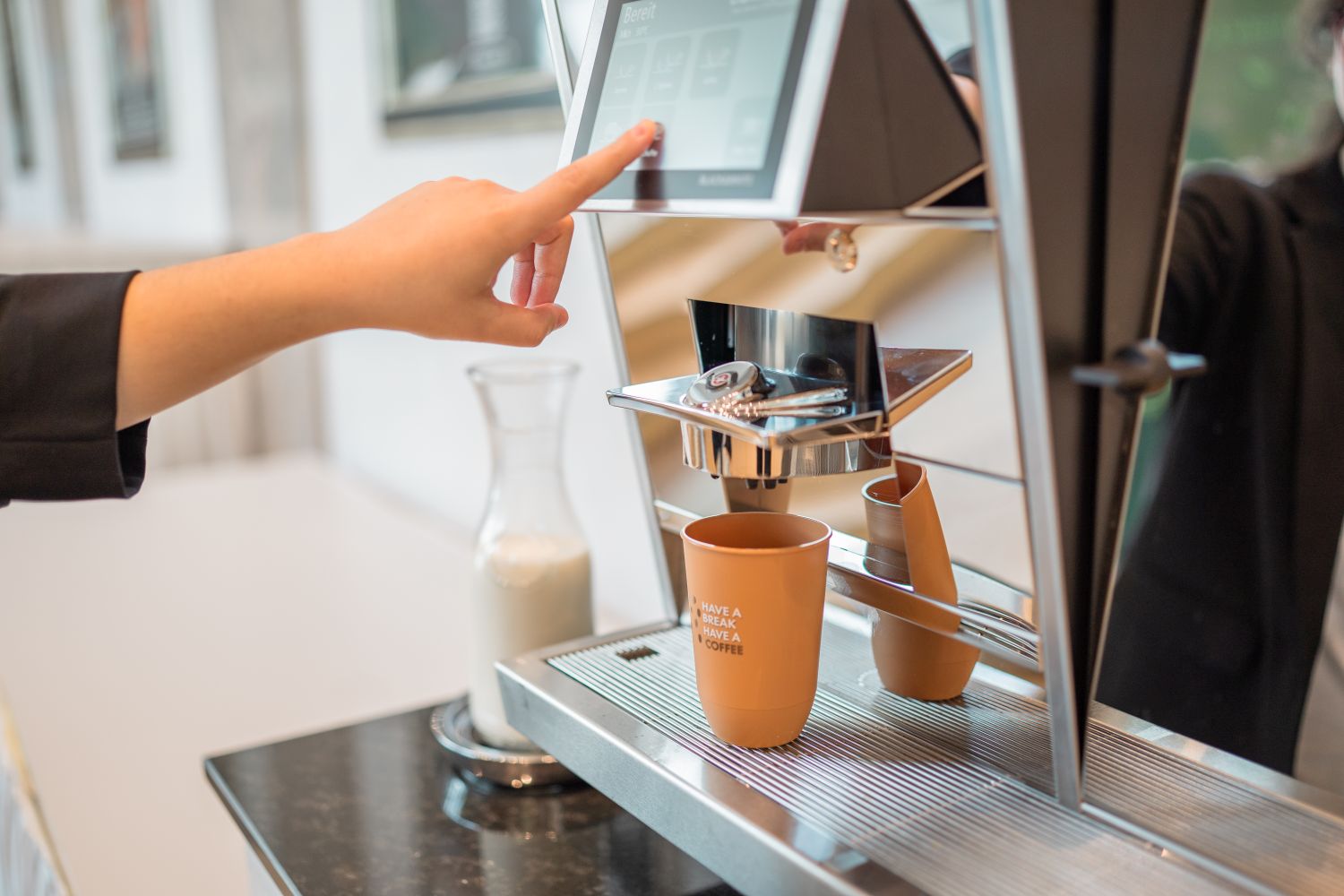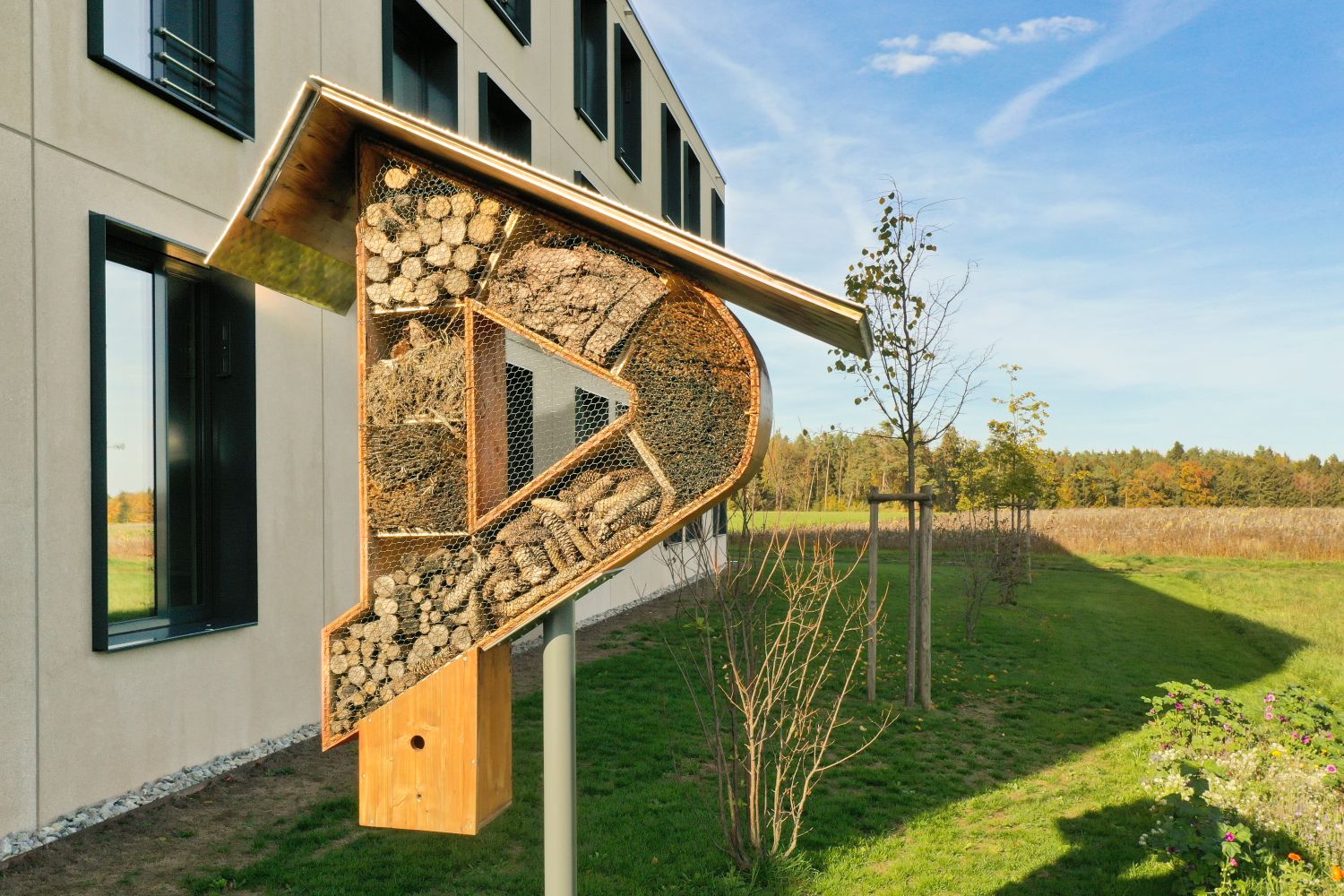DEKRA Congresshotel Wart – Meet Greener
Author: Achim Geiger
Awarded as a GreenSign Hotel (Level 5), the DEKRA Congresshotel Wart is in a league of its own in terms of sustainability. Nevertheless, the question arises daily as to which adjustments can be made to achieve even greater sustainability. Sales Manager Jan von Schaper invited us to take a look behind the scenes.
“The DEKRA Congresshotel Wart (DCHW) may be unique in the DEKRA world, but with our first-class hotel and the fantastic congress center, we offer an absolutely professional and DEKRA-compliant service,” explains Jan von Schaper, Head of Business Development Management DEKRA Congresshotel. When it comes to sustainability management, DEKRA colleagues in many places could even learn a thing or two from the DCHW. Jan von Schaper, who is just as much at home in the hotel industry as in the corporate sector, having worked at Holiday Inn and Hyatt, Vodafone and DaimlerChrysler, has found his mission for the DEKRA Congress Hotel: “We are concerned with preserving planet Earth. We want to leave a better planet for our children – and therefore have to make a much greater effort than before.” The DEKRA Congresshotel strives to make a tangible contribution. Sustainability has been a key priority for around six years. Nowadays, the DCHW is among the elite of the most eco-friendly conference hotels: In November 2023, it was awarded the highest level of the GreenSign Hotel sustainability certificate (Level 5), which is regarded as the leading sustainability seal in Europe. The certification covers the ecological aspects of sustainability as well as the social and economic dimensions.
A question of sustainability – Kiwis from New Zealand or locally grown tomatoes?
With the implementation of the concepts for environment, energy, and waste disposal, the management and team of the Congresshotel have laid the foundation for sustainability. Now it is time to do some fine-tuning. “Sustainability is a process of permanent improvement. It’s also about the day-to-day,” says Jan von Schaper. “How can we avoid wasting food? How can we buy and transport the products we use in the kitchen in a more environmentally friendly way? Which products are actually environmentally friendly? Does it have to be kiwis from New Zealand and papayas from South America every day? Or is it perhaps smarter to use locally grown tomatoes when they’re in season?” With 300 to 600 conference guests per day, finding the right answers is clearly of great importance. But what does that mean in practice?
A different kind of coffee break – One cup for the entire day at the conference hotel
At the very latest, conference participants are introduced to the DEKRA Congresshotel’s sustainability concept during their first coffee break. Each guest receives exactly two cups – one for cold and the other for hot drinks – which they are ideally supposed to carry with them for the entire day of the event. Guests use the same cup for every coffee they have that day – which, compared to conventional conferences, saves a large number of cups that are otherwise often only used for a single coffee. At the buffet, you will also look in vain for the classic coffee pot. Instead of setting up a whole battery of pots, which then stand around for hours and are often only partially emptied, each guest draws their specialty coffee from the machine – fresh, hot, and exactly when they really want it.
Less is more – The buffet is tailored to the guests’ needs
Tangible sustainability effects are noticeable – this approach saves energy, water, and raw materials and also reduces the contamination of waste water with coffee acid and fat. The conference service is complemented by a buffet set up especially for the event, which offers a variety of dishes – the selection ranges from fruit, vegetables, sandwiches, and filled rolls to cereal with various milk alternatives and homemade smoothies. In this case, the sustainability approach is to waste as little food as possible, which is achieved with one clever trick: The buffet is not set up for all guests, but only for around two thirds of them. However, the service team always keeps an eye on consumption – if an item runs out, it is immediately replenished, ensuring the buffet stays fresh.
Avoiding meat – Every kilo less saves thousands of liters of water
At lunch and dinner, the hotel team always strives to strike a balance between first-class service and sustainability. The focus lies on the guests’ health. “We make sure that we cook healthy, good, and food-safe meals,” reports von Schaper. One current project is the vegan lunch: There is no meat on the lunch menu on Tuesdays and Thursdays – while on any other day of the week, up to 60 kilograms of meat may be served. Yet it is not von Schaper’s goal to turn his guests into vegetarians or vegans. The message is a different one. The manager cites a study that shows that eating one kilogram of beef corresponds to a water consumption of 15,500 liters, while the same amount of vegetables only consumes 320 liters. “Avoiding meat is completely sustainable. Offering our veggie lunch means that we are developing enormous potential savings in terms of water consumption alone,” says von Schaper.
Opportunities for even more sustainability – A job for artificial intelligence?
“Once you get started with sustainability, you will find that you can always take it one step further,” concludes von Schaper. So what is the DCHW’s homework for the next few years? “We’re currently discussing the possibility of using AI in operations. Of course, there are still some unanswered questions, especially because a dialog with AI usually consumes a notable amount of electricity. In any case, it would be charming to have an AI making suggestions for improvement in the congress hotel. Jan von Schaper already has suitable fields in mind: “In future, we want to focus even more on regionality and organic quality in our purchasing. We also want to work on our public image – think employer branding. After all, we must show future applicants why the DEKRA Congresshotel Wart is a good choice.”


-
 DEKRA Congresshotel Wart
DEKRA Congresshotel Wart -

-

Sustainability at the DEKRA Congresshotel Wart – The highlights
The DEKRA Congresshotel Wart is committed to strict ecological standards and exemplary employee management, which, among other things, focuses on sustainable, meaningful, and healthy workplaces. The kitchen uses regional and seasonal ingredients and offers vegan dishes.
Ecology
● Increased use of organic products
● Expansion of the range of vegan and vegetarian food and drinks
● Increased purchase of “fair trade” and “sustainable forestry” products
Environment
● Insect hotel in outdoor area
● Herb garden
● Storage of rainwater in the fire pond
● Offsetting CO2 emissions (21.8 kg/guest) by supporting climate projects in India, Costa Rica, Honduras, and Nicaragua
Energy
● Connection to a local heating supply via a combined heat and power unit
● Installation of energy-efficient LED lighting throughout the building, controlled by motion detectors
● Photovoltaic modules on all the roofs
● 16 charging points for electric cars
Hotel
● Fairtrade and eco-care products in all rooms
● Accessories without plastic packaging
● Ecological and organic cleaning products
● Ecological bed linen
● Packaging-free breakfast buffet
● No energy-intensive minibar, room service, and bar
Sustainability reporting – Here comes mandatory documentation
European legislation could strengthen the demand for sustainable conferences in the medium term. Specifically, it refers to the Directive of the European Parliament and the Council on sustainability reporting by companies, dated December 14, 2022, which will require large companies to report accordingly starting in January 2026, and small and medium-sized publicly listed companies one year later. In this case, a conference at the certified DEKRA Congresshotel Wart could save a company the effort of organizing, holding, and documenting a conference based on sustainability criteria, as the DCHW provides all the necessary evidence.